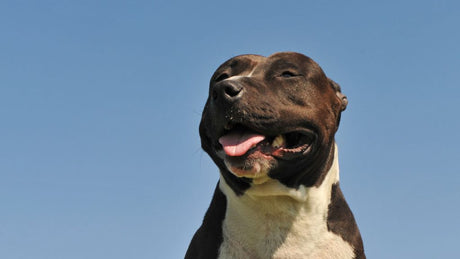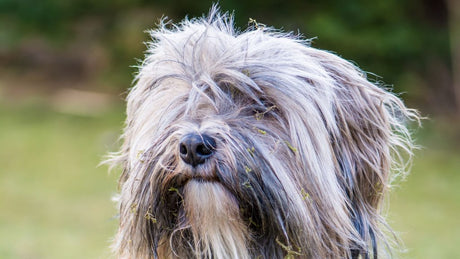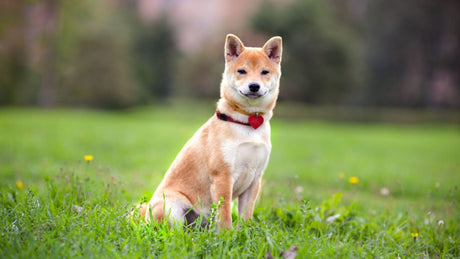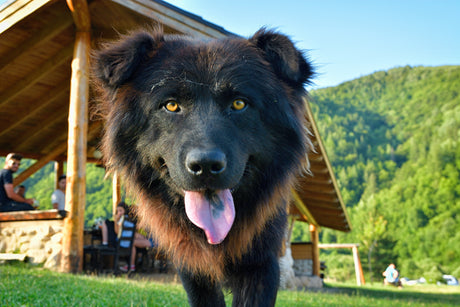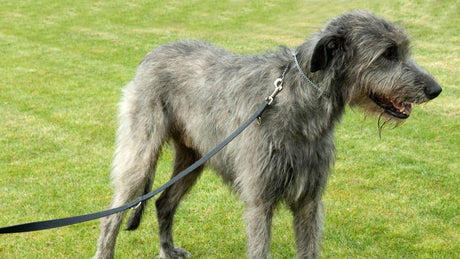The cold is not only common in humans, our furry friends are also prone to suffering from it. These discomforts are relatively frequent, especially in the fall and winter seasons. The causes may be due to viruses and pathogens that remain in the environment, such as Adenovirus type 2 or Parainfluenza , and excessive cold.
The canine cold causes great discomfort, causes tiredness and loss of appetite in the dog. In addition, you should be careful with the symptoms, as they are very similar to those of distemper, a highly contagious condition that is caused by a Morbillivirus of the Paramyxoviridae family , and to those of the disease known askennel cough , which is often caused by a bacteria called Bordetella bronchiseptica . Therefore, when in doubt, we recommend going to the veterinarian for a more accurate diagnosis.
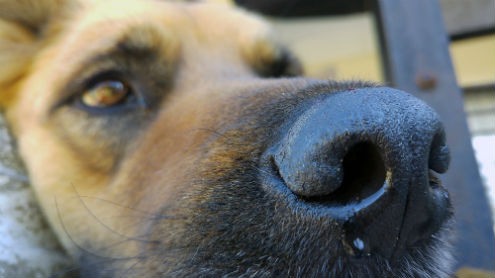
If the cold is mild, the dog may improve within a week, as long as you give it proper care. You should know that, like humans, dogs also need to be warm, not get wet, and receive adequate nutrition when they are suffering from an annoying cold. Therefore, if they do not receive adequate care, what may be considered a simple cold could become serious and bring with it serious complications. That is why you must be very attentive to your dog's state of mind and health. It is part of the care you must give it and it is your responsibility to detect any anomaly in time.
Symptoms of the canine cold
Some of the symptoms that a dog presents when it is suffering from a cold are: Constant sneezing, mucus and runny nose, cough in some cases accompanied by vomiting, difficulty breathing, congestion, general muscle pain and weakness, lack of appetite, drowsiness, watery eyes or eye discharge, fever, headache, inactivity and depression.
If any of these symptoms are detected, it is best to have it examined by a veterinarian, since, as we have mentioned, they can be confused with those of distemper, which is a dangerous disease and can even be fatal.
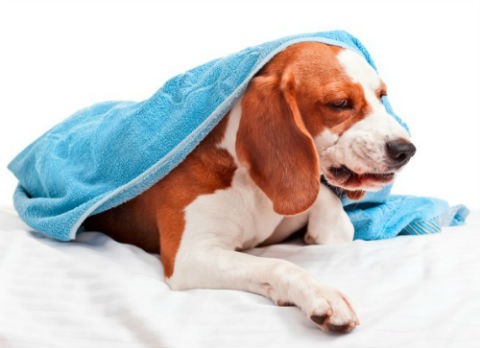
Other important aspects that you should pay attention to if your dog has a cold are:
- If the dog passes blood in nasal secretions or when coughing.
- If your faithful friend is already an old man or if he is still a beautiful puppy, his defenses are not as strong as those of a young dog.
- If you hear a strange whistling sound in your dog's chest when he breathes, similar to what is felt in people who suffer from asthma.
What NOT to do if your dog has a cold
The first thing you should know if your furry friend catches a cold is that you should NOT medicate him without a veterinarian's prescription . As with humans, for dogs there are also dosages according to the patient, and medications cannot be administered to dogs in the same way as to people.
Try not to expose it to cold or sudden changes in temperature. If the dog has a cold, it is preferable not to take it out for its routine walk, since its situation may worsen due to the cold and contact with other dogs. Well, your immune system will be weaker and you can catch any virus more easily.

You should not give paracetamol , since it is contraindicated for dogs due to the serious problems it can cause in the liver and liver failure can cause death.
One of the most affected areas when the dog has a cold is the throat, so be especially careful and do not touch it with sudden movements or place tight collars.
The supply of expectorants, antibiotics, immunoglobulins and vitamin complexes must be done under medical prescription.
You should avoid smoke and dust. Normally it is advisable to prevent the dog from being exposed to cigarette, tobacco or any type of smoke, but especially when it is suffering from a cold, due to the respiratory problems that this represents.
What to do if your dog has a cold
With a medical diagnosis and appropriate treatment, in addition to following the specialist's instructions, you should pamper your pet more than you normally do. Due to the tiredness caused by the cold, you will need to sleep more than usual. You should let him rest as long as he needs.
Make sure the house is warm, without annoying noises, and make their little corner a comfortable and quiet place. Prepare his bed with a blanket, place the bowl of water and food nearby so he can eat whenever he wants. Likewise, we recommend that you make sure that he drinks enough water to hydrate himself and that he eats enough to recover.
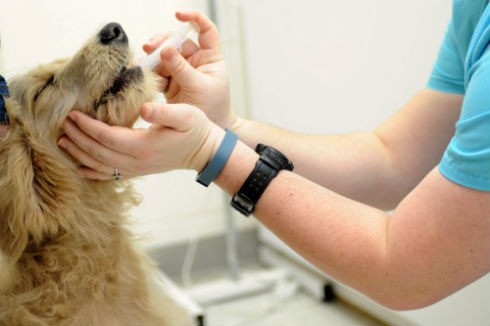
If the dog is very congested, you can take him to the shower and turn on the tap with very hot water, so that he inhales the steam and helps him decongest. It is one of the most effective home remedies to cure a dog's cold . You can do this for about ten minutes. You can also inhale the steam of hot water with eucalyptus.
If you have to bathe him, do so with warm water and then dry him well with a hair dryer. Although it is preferable not to bathe him while he has a cold .
Due to the congestion caused by mucus, the canine will not be able to perceive the flavor of food well, making it difficult for it to eat. In this case, mix his food with a little hot unsalted chicken broth, this way the aroma of the food will motivate him to eat, or provide special wet canned food for convalescent dogs.
If you notice that he is not drinking enough liquid, you should help him by giving him water with a syringe without a needle, this way you will keep him hydrated and the mucus will flow well and become diluted.
If the dog's cough is very bad, you can give it a little honey, this will help relieve the cough. This is another effective home remedy to help our furry friends improve their cold.
You can also read:


